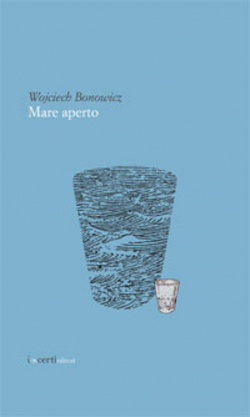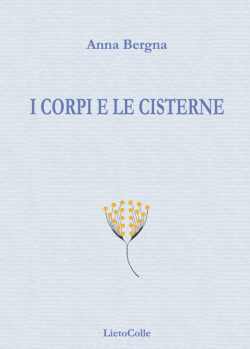Canis minoris
by Vincenzo Bagnoli
The blue in altitudes gets darker and that’s why you climb up there
On clearest days I wait for rain, for grey of clouds and fog, and smoke
(and smoking kills is written here), to see no more, to feel no more
to no more see it rising back and dawning sharp on the skyline
that northern constellation, that trace in the sky and reference point
a trail or mirror for the eyes, but in each case there’s no wise choice
whichever way you are to take, Orion will come to lead our hunt
and say it’s time to walk away, to walk alone, no prayer left
in all this time kissed by the years, and lost in wonder, in its blaze
Listening guide: M. Oldfield, Man in the Rain; Aarktica, Ocean; Durutti Column, Never Known; Roxy Music, A Song for Europe.
Vincenzo Bagnoli
THE BOOKSHELF OF POETRY AT L’ORTO DEI LIBRI BOOKSHOP
by Francesca Del Moro
The poetry section in the bookshop L’Orto dei Libri is not too big but carefully curated. Poetry readings are frequent and here poets are considered as friends and welcome guests. In cooperation with the Bracciano-based Laputa association, the bookshop fosters a compound of poetry and comics, which, in particular, led to the discovery of Bigio Cecchi’s Days, a comic book based on Poe and Arthurian poems. L’Orto dei Libri tracks down its treasures among the best titles by small Italian publishers, which often offer the most interesting glances over international contemporary literature as well. The bookshop owner Giorgio Galli is also active as a critic in cooperation with Perìgeion and, occasionally, with Poetarum Silva; for this ILLUSTRATI issue he has chosen to recommend and comment I corpi e le cisterne by Anna Bergna and Mare aperto (The High Seas) by Wojciech Bonowicz.
Bookshop L’Orto dei Libri - Via Diego Simonetti 70, Ostia (RM) - lortodeilibri.it
Mare aperto
by Wojciech Bonowicz
I go up and I don’t disclose to the calm gaze
of the hostess that for a moment I feel like a saint. Assumpted
for a while in the heaven that will devour us all.
Wojciech Bonowicz was born in 1967, in Oświęcim, also known with the German name of Auschwitz. But he is not the author of historical, memorial poems. His lines ironically deal with God and faith: God is immanent and faith is identified with the practice of poetry, which is able to pinpoint the metaphysical gaps of everyday life. Krzysztof Siwczyk writes about his poems: “They defend themselves from literal meanings, and protect silence,” where “everyday experiences, full of paradoxes in front of the inexpressible, do not allow to think about God and talk about Him without any fear or doubt.” Wojciech Bonowicz’s poems arise from occasions of all sorts, even from a conversation heard by chance in the streets, and resort to irony as a weapon against the bewilderment and the horror arising from the wondrous and meaningless part of creation. Sometimes mentioned, sometimes contemplated, more often hinted at, the sky/heaven is the silent touchstone—and the mute witness—of human imperfection; Mare aperto measures the discrepancy between the gaze of God and the limited gaze of men, who stare at the celestial vault through all the limits of earth.
Mare aperto by Wojciech Bonowicz, incertieditori 2012
I corpi e le cisterne
by Anna Bergna
When I think of a celestial body
I see a singular solitude,
an endless drift.
Based in Lecco, Anna Bergna is a very shy poet who hasn’t published a lot but—as Cristina Campo once said about herself—wishes she had published even less. Her poems-thought influenced by Lucretius focus on natural elements and basic existential questions. Through spasmodically condensed or solemn verses, she questions a vault of Heaven which has apparently forgotten the secrets of Creation and seems to be on the verge of collapsing on the horizon line. Heaven doesn’t offer the awaited metaphysical openings, but bounces human concerns back to earth, returning them magnified. Through a language inlaying scientific terms, names of places and animals and a subdued everyday lexicon, Anna Bergna discloses a godless firmament, and an earthly world where all animate and inanimate beings appear to be made of atoms of sorrow, and the contemplation of God’s silence is the only thing left to human beings.
I corpi e le cisterne by Anna Bergna, LietoColle 2015


